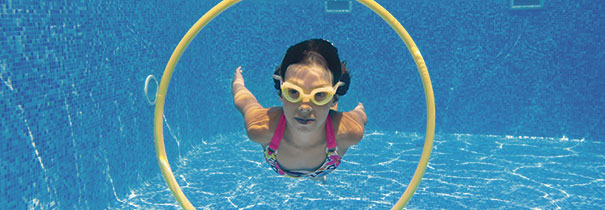
Meeting young swimmers’ energy needs just takes a little planning!
It is important for young swimmers to have the energy they need for their everyday activities, swim performance and growth. Monitoring calorie intake is the key to making sure your young swimmer has what he or she needs.
Don’t go overboard. When you ask the question, “How much does a young swimmer need to eat?” you might have flashes back to Michael Phelps’ 10,000+ calorie per day revelation as he delivered blow after blow to the competition in 2008. That was really over the top calorie consumption.
We’d like to bring reality to what children ages 9-13 should be consuming to keep up their energy levels for their performance and development as swimmers.
1,500-2,400 calories each day is the recommendation for the above-noted age group. Of course, whether your child is on the high or low end of this range depends on age and gender, but within this range should support the demands of normal growth and development. Add the energy burn of a regular two-hour swim practice, and the energy needs can soar to the tune of 2,700 – 3,600 calories or more per day.
That is quite impressive consumption.
Fit consumption to need. What was noted by the “Journal of Strength & Conditioning Research”, 2011, was that young, swimmers have low energy consumption compared to what they need. This research also noted that these young swimmers were consuming too much protein while failing to get some of the vitamins and minerals important to their performance – and overall health. So watch your child’s behavior during and after swim classes and adjust their consumption to make sure they are getting what they need.
If caloric consumption is too low, swimmers can fatigue easily, lack focus and perform at less-than-best levels. They can even suffer a delay in physical development illustrated in a lag in muscle building, a slowed height growth and perhaps a delay in adult development (if caloric consumption is too low for an extended period of time). Of course, you (as parents) want to make sure that your children get the energy they need from the proper food sources.
How do you give them what they need?
First of all, stay away from high calorie, nutrient-poor foods from the fast food drive-through. These are excessive in fat, salt and sugar and they under-deliver important nutrients like iron, calcium and B vitamins. They also set the stage for future food cravings and selections that won’t support good health when swimming is over.
It isn’t complex.
Here are some tips:
• Make sure your kitchen is stocked with quality nutrition such as whole foods in their natural state including low fat dairy products, lean meats, vegetables, fruits, whole grains and healthy fats. These foods are not just appropriate for young swimmers but are the foods that all growing children should be eating.
• Follow the “three nutritious meals a day” rule and no skipping is allowed! A meal should include at least 3-4 proteins, dairies, fruits, vegetables, healthy fats and/or a whole grains.
• Your child should have two snacks (each day) that include a protein source. Meats, beans and bean dips, nuts and nut butters, cheeses, yogurt, milk or milk substitutes, and protein-rich whole grains such as quinoa provide protein to young swimmers’ bodies so choices such as unsweetened cereal and milk; yogurt, fresh fruit and nuts; whole-wheat toast and peanut butter are perfect.
• Regularity is important. Kids perform best in all aspects of life when they maintain a consistent eating schedule. Try to provide a meal or snack every 3-4 hours and avoid ever sending your swimmer to class on an empty stomach. Maintaining energy levels for young swimmers just take a little bit of planning. But that little bit of planning goes a long way to make sure that they get enough nutrition to support their energy needs and keep them healthy, growing and energized for activities in the pool.
Keep high energy snacks with you. Make sure that your swimmers have an adequate food supply – healthy snacks that travel well – with you on class days so that you swimmers’ energy levels don’t drop too low just before or after class.
Studies have shown that the most important time to eat a small snack after a active exercise to replenish energy levels is within 30-45 minutes of completing the activity. Studies have also shown that chocolate milk is the best after workout drink. (perfect balance of carbs + protein) Consumption of water/Gatorade®/Powerade® is essential for swimmers, so make sure this is one of the items that you take with you and make sure that they consume after class.
There is a bonus to educating young swimmers about energy levels, nutrition and hydration: It establishes good early habits and sets them up for healthy lifestyle choices for years to come.


Conversations